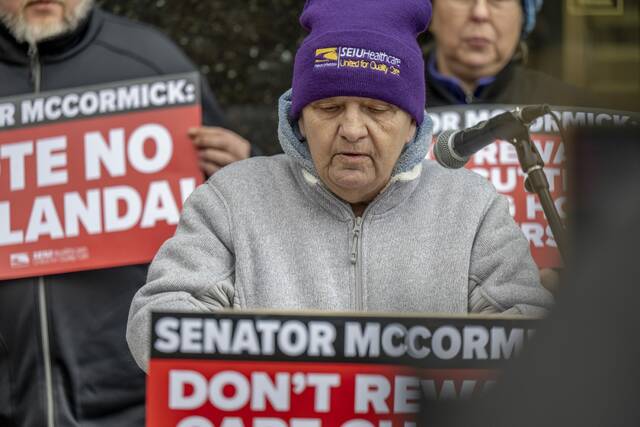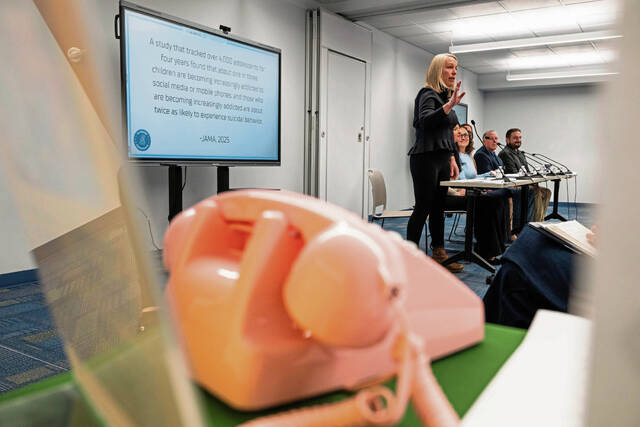To address mounting concerns about housing affordability, President Donald Trump recently floated the prospect of a 50-year mortgage, days after several key election contests that centered on cost-of-living issues.
“All it means is you pay less per month,” Trump said in an interview last week.
Yet the president’s idea is struggling to gain traction in the housing industry. Experts largely dismiss it as a shortsighted model that provides minimal cost relief while ultimately hurting homeowners over the long term. They also caution the plan could stoke demand, further raising home prices in a market constrained by a lack of supply.
“A 50-year mortgage dramatically depreciates the biggest value of homeownership — wealth building,” said David Dworkin, president and CEO of the National Housing Conference. “Over time, the loss of equity quickly overcomes any savings on payment.”
Slow equity, high interest
Paying for a home over five decades would substantially increase the amount of interest homeowners would pay while significantly slowing the amount of equity they build.
Consider a $420,000 mortgage with 20% down and a 6.3% interest rate. The monthly payment would be $236 lower for a 50-year loan than a 30-year loan, according to Lawrence Yun, chief economist at the National Association of Realtors (NAR).
But, Yun said, “the total cost of the home would rise to roughly $1.1 million, with nearly $360,000 more in interest paid over the life of the loan. It would also take almost 40 years to pay off half the balance, meaning most borrowers would not begin building meaningful equity until the final decade.”
This is problematic in an aging market. The median age of a first-time buyer has risen to a record of 40 years old, NAR reported recently. The slow equity build-up would also make trading up or down — cashing in on equity to purchase a more expensive or cheaper home — very difficult, Yun added.
A divisive proposition
“I think it’s absolutely ridiculous,” said Donna Tidwell, a Realtor with Berkshire Hathaway in Ligonier. “As an experienced real estate agent for 40 years, I’ve seen a lot of ideas and trends, and this is one of the worst.”
For Tidwell, paying about 86% more interest than on a 30-year mortgage is not worth the short-term savings. She recalled that 40-year loans were floated before the Dodd-Frank Act went into effect in 2010.
“Unscrupulous lenders may have steered people toward them to get a bigger return, but a good Realtor would not,” she said. “I wouldn’t recommend one of these to any of my clients.”
Conversely, Ralph Scalise, owner of Scalise Real Estate in Latrobe, said he doesn’t view a 50-year mortgage with concern.
“On the average nationwide, homeowners stay in their home seven or eight years before they consider selling,” Scalise said. “So with a 50-year mortgage, it could save you about $170 per month on a $230,000 mortgage.”
Scalise said he advises homebuyers to seek the lengthiest mortgage they can find.
“Pay what you can afford,” he said. “Then if things get tougher financially, you have a safety net. If I’m paying $1,200 per month, but I can afford $1,600, you can always start paying that $1,600 and knocking years down off your mortgage.”
Implementation challenges
Beyond the long-term cost concerns, experts say the 50-year mortgage is not a viable concept.
“It will never happen,” said Dave Holland, president of HMA Mortgage in Pittsburgh. “We want to create generational wealth, and this would create generational debt.”
The idea would also face significant regulatory hurdles and likely take years to implement.
The Consumer Financial Protection Bureau would have to amend the Qualified Mortgage rule to allow loans with terms longer than 30 years to be eligible for that designation — a process that would take at least a year, given the notice and comment requirements involved with rulemaking.
Fannie Mae and Freddie Mac, the two government-controlled companies with more than half the residential mortgage market, could theoretically create a market for 50-year loans in the interim by buying them from lenders. But lender appetite would depend to some extent on the legal liability protection afforded by the Qualified Mortgage rule.
“Lender willingness to offer a 50-year mortgage product is likely to be muted given that Fannie Mae and Freddie Mac are currently prevented from buying non-QM mortgages,” said Mortgage Bankers Association spokesperson Falen Pitts.
Fannie and Freddie buy mortgages from lenders and package them into securities to sell to investors, freeing the lenders to make more loans.
And while the smaller monthly payments of a 50-year product might be welcome, the model might lead to other homebuyer frustrations down the road.
“The slow equity build would make trading up or down very difficult,” said Yun, referring to the ability of homeowners to cash in their equity by selling their homes to buy either more expensive or cheaper housing.
The leaves it unclear whether homeowners will ever face the choice of signing up for a 50-year mortgage.
Federal Housing Finance Agency Director Bill Pulte called the proposal “a complete game-changer.” A day later he seemed to backtrack, casting the idea as “simply a potential weapon in a wide arsenal of solutions that we are developing.”
Holland said the concept is a “headline grabber.”
“I think it might be the final straw for Pulte,” he said. “Basically, we need someone one charge of the (Federal Housing Finance Agency) who knows what they’re doing, and that’s not a political statement, that’s just the truth. I don’t think he’s doing the president any favors. Both sides of the aisle panned this idea pretty quickly.”











